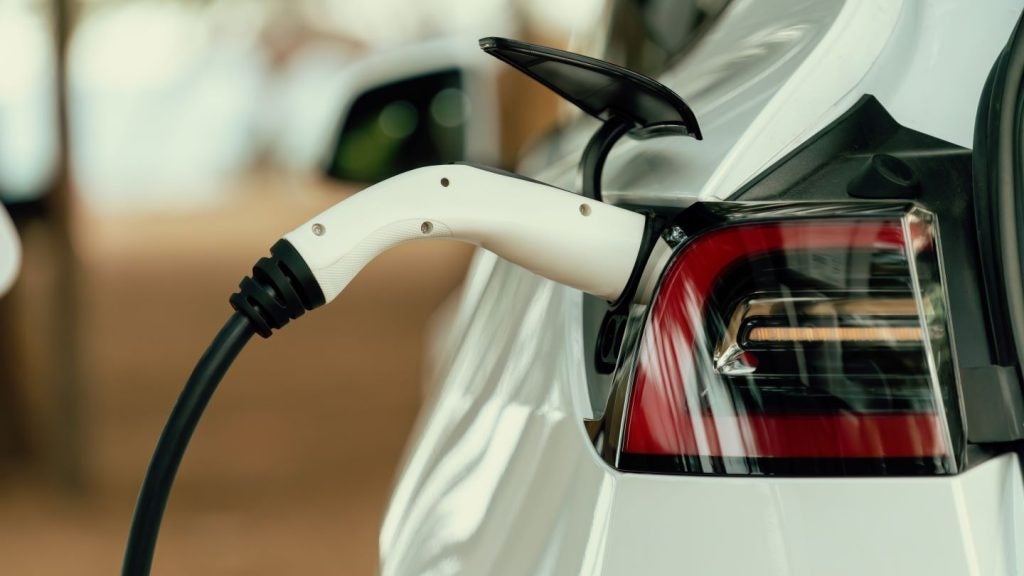
At the final panel at the Berlin Motor Finance Europe conference, a group moderated by Alfa chief executive Andrew Denton and consisting of Spencer Halil, director, Alphera Financial Services; Luke Curtis, head of MotoNovo Commercial Finance; Eberhard Hackel, senior director, EMEA, Fitch Ratings; and Steve FitzGerald, global sales director, Chrysalis Loyalty considered the future role of the dealer in motor finance. Lorenzo Migliorato reports.
Andrew Denton (AD): What is the role of the dealer in the future? Does digital have the ability to disintermediate the dealer?
Luke Curtis (LC): I think it does. The technology will, I guess, remove the dealer from parts of the journey. A lot of the negotiation, a lot of the pricing, a lot of the things that customers find uncomfortable – digitisation will take that out of the dealer’s hand. And ultimately it will be a smoother experience and a more efficient experience for the dealer. Whatever this digital journey ends up being, it’s really important that the dealer understands how that has come about. Otherwise the end-experience – the fulfilment experience right at the end – is not going to be acceptable, not going to meet the customer expectations. [But] there is going to have to be a place for the dealer.
AD: Steve, what is that place?
Steve Fitzgerald (SF): I think, as Luke says, it’s fulfilment. If you look at the brass tacks of it, it’s a horrible experience going into most dealers today. You want to go in, get your credit card out or sign a finance agreement on an electronic pad, get your car and away you go. [Instead,] they’ll stick you in front of a business manager for an hour, trying to sell you all his wares.If you look at some of the bigger groups, most of their profit comes from F&I – they’re giving the cars away, there’s no margin in the car. So, I think the dealers have to clean up their act, they have to get in line with current technology. I think they have to make it a much more user-friendly experience for the customer. It’s got to be “in and out” within an hour at the most, I think. So that when you go in there, you’re getting an experience. There is a place for [dealers], and I think for the next 10 years they’ll still be around probably much in the same way they are now, but things will change: the groups will get bigger, they’ll look at slimlining their operations. I see changes, but I think it’ll be much the same as it is now, with some consolidation I think.
AD: There is this kind of feeling that when you go into a dealer they work on train tracks. If you are the right kind of cookie then it’s absolutely fine for you, but if you deviate in any way they still want to take you through exactly the same process, even though you don’t want to be there. How do you think dealers are going to have to change to adapt to this future?
How well do you really know your competitors?
Access the most comprehensive Company Profiles on the market, powered by GlobalData. Save hours of research. Gain competitive edge.

Thank you!
Your download email will arrive shortly
Not ready to buy yet? Download a free sample
We are confident about the unique quality of our Company Profiles. However, we want you to make the most beneficial decision for your business, so we offer a free sample that you can download by submitting the below form
By GlobalDataSpencer Halil (SH): I think the degree of role that they have is largely in their own hands. That train-track approach that you mentioned – the time is already running out for that. Customers don’t want to be corralled down a specific sales process regardless of the level of information they have. They want to enjoy the experience of test driving, or experience the product. The dealer that decides it’s going to ignore everything that’s going on in the wider marketplace around the digitisation of the sales process, or even the fact that the majority of customers know exactly what they want when they come into the dealership – those dealers won’t be around as long as the dealers that are able to embrace the change and go with the flow. You only have to look at one of the most innovative car manufacturers in the world: Tesla. They own their own dealers; they don’t take any commission from their finance company partners. They don’t sell finance: they provide finance as a customer requires it. I think that is potentially the future. I think we actually need to move away from so much of the profit being in the F&I.
AD: Certainly, within Europe there seems to be mixed messaging in terms of whether OEMs do or don’t want to own the dealership. I was having a conversation earlier about a lot of owned dealerships within Europe, or what you might call accidental ownership. For instance, the dealership got into trouble, and the OEM looked after it because it was a prime site, and then forgot to divest of it. What is the panel’s view in terms of dealership ownership?
SF: I have worked for Mercedes-Benz’s Retail Group, owning [dealerships in] Birmingham, London, and Manchester. The only one they’ve got left now is London, which I think they want to divest themselves of. I think with the amount of cars Mercedes had coming back at the time, they needed their own network to disperse those cars; most of them were going back to the auctions, and the dealers didn’t want them. Maybe with the change in technology, this might change in the next few years, if the manufacturers want to go direct-to-market, have their own outlets. At the moment, in my experience is: “No, we don’t want dealership ownership.”
AD: Going back to the Tesla example. Their customer is their marketeer, their referrer. They don’t pay any commission, they have salaried salespeople and they are by all accounts doing a very good job with their customers.
SC: I think what’s come out today is that actually none of these organizations have the total skill set. We don’t necessarily want to be fintechs, and I would agree with that, because that’s not our core skill set. And then we’ve also said that maybe the OEMs don’t necessarily have the skill set to be physical property owners and retailers. I think where this could ultimately all be heading is to some collaboration, where people actually focus on their own core skill
set, with a narrower kind of mission statement, so that they excel at what they do. Maybe there will be a platform that sits on top of that, where the different skill sets combine into a total customer journey.
AD: We’re painting a picture of a future where there’s lots of data moving around, lots of people working with each other. And, of course, we’re in the GDPR world now. Are your ears bleeding with the level of operational risk you’re hearing here? SF: It would be much easier if you were an OEM doing it yourself. You know what model runs and run outs you have got coming, you have your own call centre to call customers, you are not relying on a third party to get a lead and actually do something with it. If you run the whole operation yourself, it makes for a much more interesting concept. You change cars when you want: if you want, you change somebody from a 36-month agreement into a new car that’s coming in at 18 months, because you can see the residual value in three years’ time absolutely bombing, so let’s get the customer out, get him into another car and sell that one on the used car market. It is much easier to control all of those sorts of operations.
AD: Dealers’ local organisations [are] under OEM pressure, and they’ll need to invest to stay alive. How many of them will survive?
LC: It’s those that adapt to the right journey, those that invest in people, whether it’s training, or with accreditation. We talked about the way Tesla operate their stores and how it’s more like a retail environment, and I think those that actually start to think about putting themselves in the shoes of the customer, those are the ones that will survive.
AD: Spencer. Talk to us about [Alphera’s proposed] accreditation innovation [for dealers], and how do you think that will influence the industry?
SH: Obviously our hope is that it will reestablish confidence that has been eroded recently. But also, if the dealer delivers something much stronger in terms of a customer experience at point of sale, they will be more resilient and less likely to get cut out of the process. One aspect of that, for sure, will be offering the expertise and advice and qualification when it comes to F&I. It’s going to be very difficult, even with all of this great stuff that we’d been hearing about, like chatbots and all the rest of it, for an online environment to give the advice that a face-to-face discussion with a really wellqualified and trusted individual can deliver. Potentially this could be a survival plan for the majority of our dealers.







